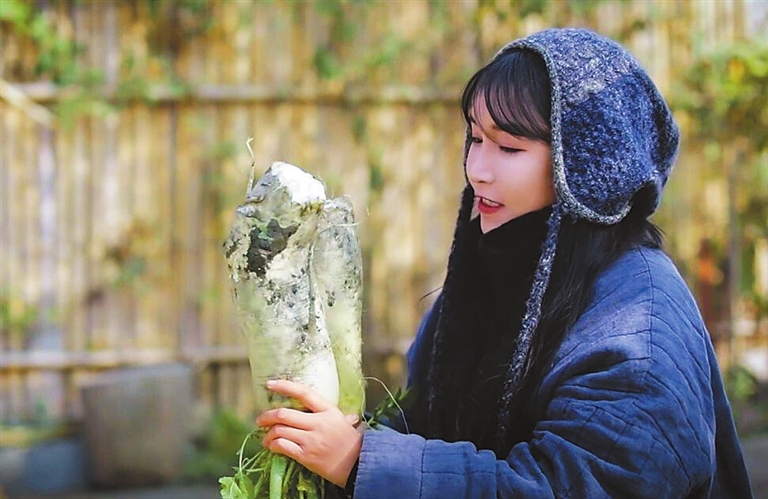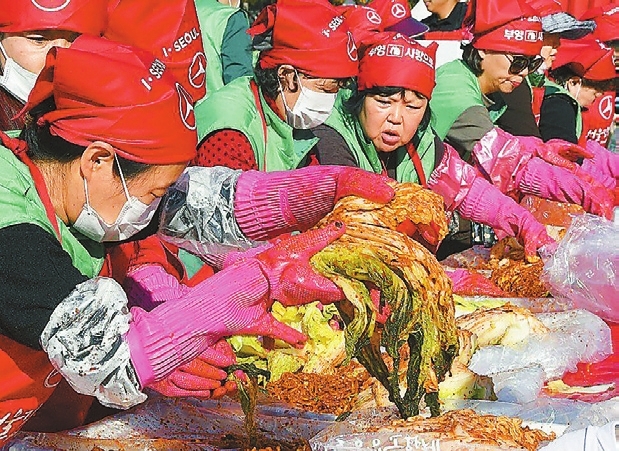

CHINESE Internet culinary sensation Li Ziqi has sparked a renewed cultural clash between China and South Korea over paocai, or kimchi. Li, a famous Chinese food and rural-life vlogger with 14 million followers on YouTube, recently found herself sucked into this cultural battle after posting a 19-minute-long cooking video Jan. 9, in which she makes pickled vegetables, using the hashtags #ChineseCuisine and #ChineseFood. The video prompted a backlash online, with some South Korean netizens arguing that kimchi is a Korean dish and blaming Chinese, like Li, for “stealing” the culture and traditions from South Korea, demanding the video be removed from the Internet. “Do you have a kimchi refrigerator in your house? I have one in my Korean home,” one commentator wrote in Korean. “It is true to some extent that kimchi was derived from the Chinese dish … however, it is important to acknowledge the fact that these are two distinct dishes,” another wrote in English. The argument also expanded to a video released a month ago by Li that shows herself making dried persimmons. “Dried persimmon is also Korean food,” a netizen commented. “I love Korean food gotgam [dried persimmon],” another said. Such comments ignited wide criticism and mockery from Chinese netizens. “I have been eating persimmon in China for more than 20 years. When did it become Korean exclusive food? When did it become an exclusive culture of South Korea?” a netizen said. The 30-year-old Internet star — who has a combined social media following of 58 million — shot to fame when she began posting ethereal, dreamy videos three years ago that give glimpses of traditional Chinese culture through food. In the video titled “The Life of a White Radish,” Li takes viewers through the vegetable pickling process step by step, from plucking the cabbage from the ground to pickling it along with bok choy, radish and sausages, and applying a spicy seasoning. She then uses the fermented vegetables to make a soup. Such clashes reflect deep and close cultural ties between the two countries, which have been carried on in mutual exchanges for thousands of years, experts said. “Bilateral exchanges in many areas, like food, agricultural technology and medicine, between China and South Korea have been so close in history, that it is very normal that both sides have something in common,” Zhang Yiwu, a professor from Peking University, told the Global Times. In history, China developed relatively early and had some influence and output on other societies in East Asia in multiple aspects, while other places in the area also made their own unique creations, which together have enriched the development of East Asia, Zhang noted. Zhang said that such imbroglios among Chinese and South Korean people are “not necessary,” and called for people to view each other’s cultures with an open mind. In early December, a China-led application to the International Organization for Standardization of paocai, the Chinese version of pickled cabbage, started the feud. Protectors of kimchi culture on South Korean social media accused China of attempting to “steal the culture.” Again Chinese netizens responded with mockery and criticism. At a press conference Dec. 1, 2020, Chinese Foreign Ministry Spokesperson Hua Chunying emphasized at a press conference that cooperation and shared benefits between China and South Korea surely overweigh disagreements on kimchi’s origin. Cultural clashes between China and South Korea aren’t only food-focused. People of the two countries have argued about the origins of various clothing items, the practice of acupuncture, and even traditional holidays. (SD-Agencies) | 
